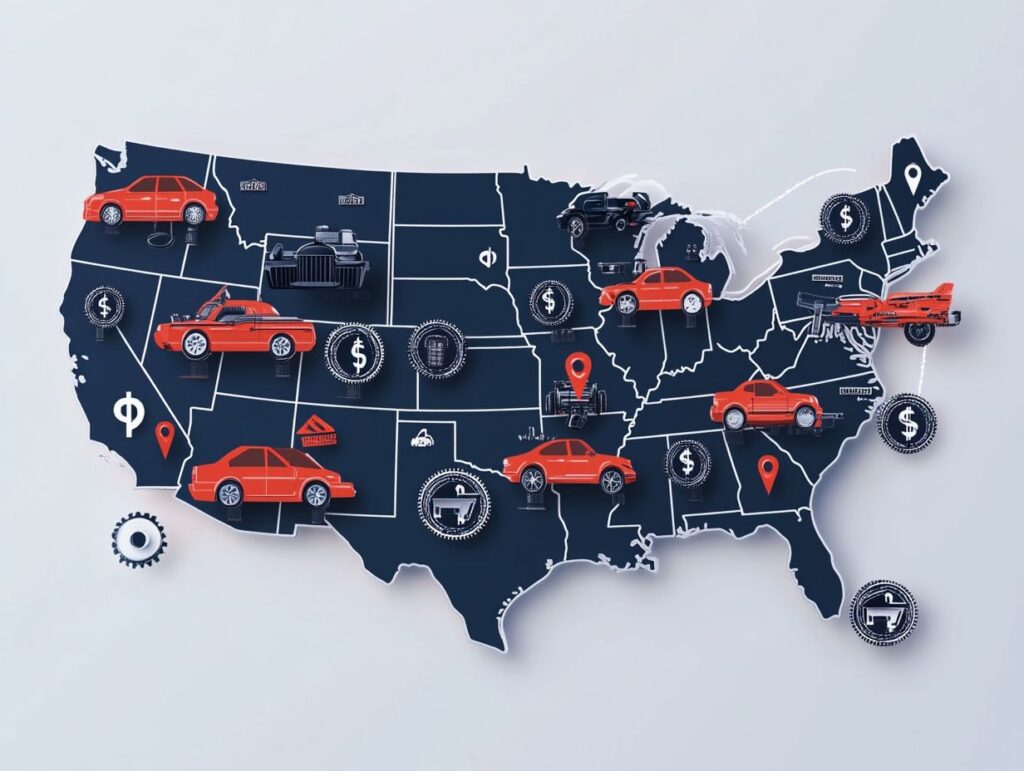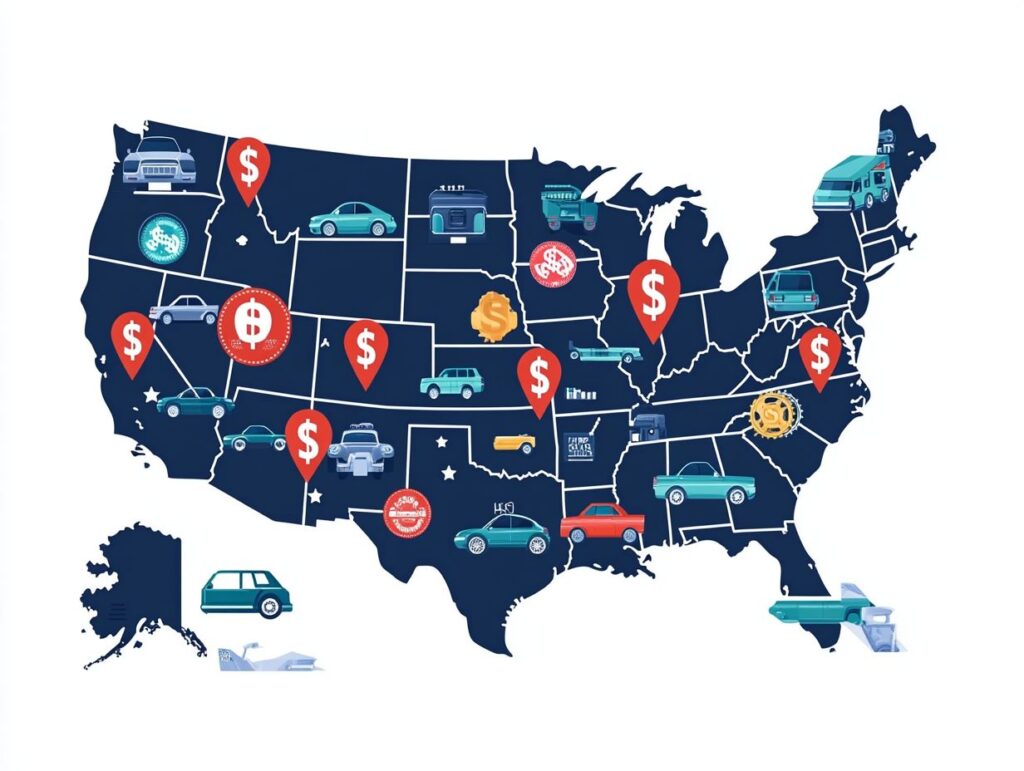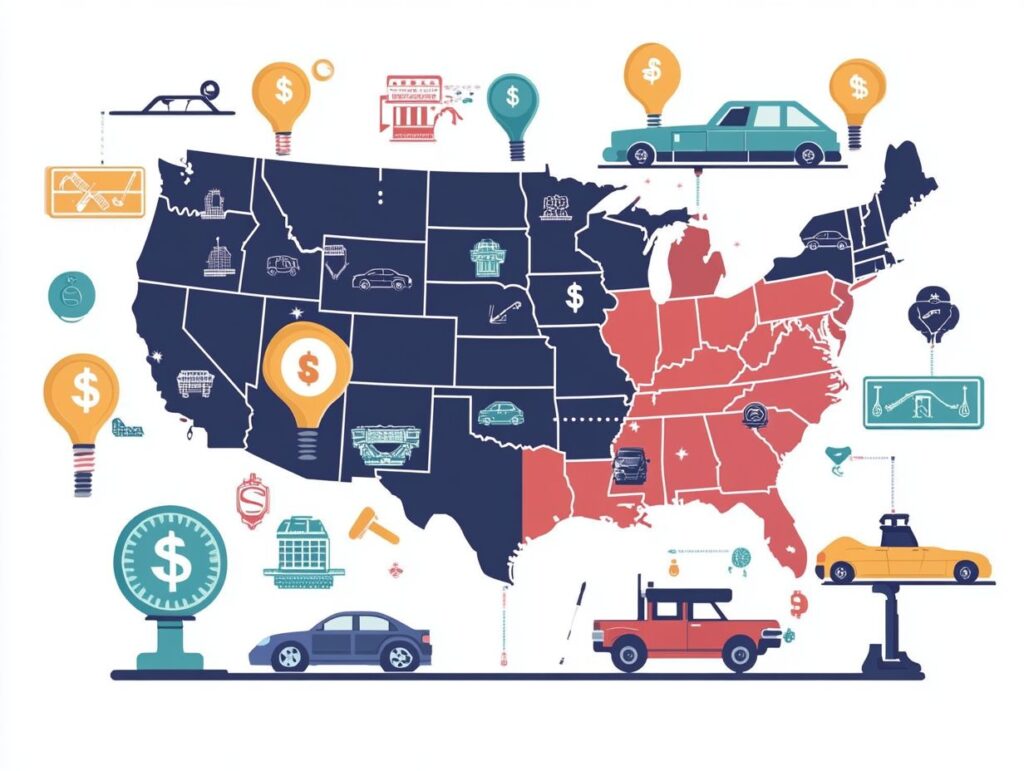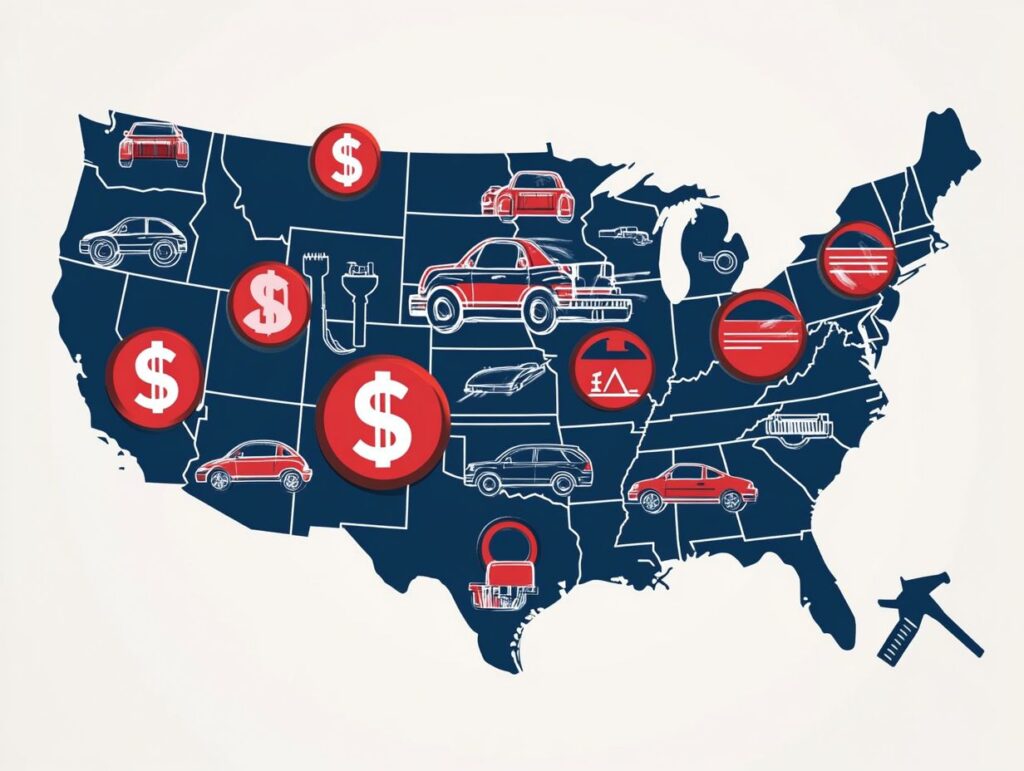
Starting an auto detailing business can be an exciting venture, though the registration process may initially seem overwhelming. This guide provides a comprehensive overview of everything you need to know about registering your business, covering topics from the fundamentals of auto detailing to the various factors that affect registration fees.
It features a state-by-state comparison of fees, highlights additional expenses such as licensing and insurance, and offers practical tips for reducing costs. Whether you are a newcomer to the industry or seeking to streamline your existing business, this information will prove valuable.
Overview of Auto Detailing Business Registration

Starting an auto detailing business requires navigating several registration processes, understanding the specific requirements set by your state, and selecting the appropriate business structure, whether it be a sole proprietorship, LLC, or corporation, to ensure compliance with local regulations.
Additionally, obtaining the necessary permits and securing a federal ID and EIN are critical steps in establishing a legitimate and functional business.
This guide will delve into the essentials of registering your auto detailing business, providing you with the information you need to embark on this venture successfully.
Factors that Affect Registration Fees
The registration fees for initiating an auto detailing business can differ considerably depending on various factors. These include specific state requirements, the chosen business structure—be it a sole proprietorship, LLC, or corporation—and any additional licensing or permit fees that may be relevant to your area.
It is important to understand these factors, as they are crucial for budgeting and forecasting startup costs, which can directly influence the overall operating expenses of your business.
State-Specific Requirements
Each state has its own unique requirements for business registration that auto detailing business owners must adhere to, including local regulations that often specify particular licensing, permits, and compliance with zoning laws to ensure lawful operation. Understanding these state-specific requirements not only helps avoid potential legal issues but also contributes to establishing a professional reputation in the competitive detailing market.
For example, some states may mandate detailed environmental permits concerning the disposal of hazardous materials, particularly if the detailing service involves the use of chemical cleaning agents.
Auto detailing businesses must also navigate the complexities of local health and safety regulations, which may require obtaining specific permits for water usage or runoff management.
It is crucial for these business owners to consult with local authorities or industry associations to clarify expectations and ensure compliance.
By proactively understanding and addressing these varied requirements from the outset, detailing professionals can streamline their operations while building trust with their clients and the community.
Business Structure and Size
The choice of business structure for an auto detailing business—whether it’s a sole proprietorship, LLC, or corporation—can have a significant impact on startup costs, tax obligations, and personal liability. It is essential to carefully evaluate which option aligns best with your business goals and financial situation.
Each structure comes with its own set of advantages and disadvantages that can affect not just initial registration fees but also ongoing compliance costs. For example, a sole proprietorship requires minimal paperwork and has lower startup expenses, but it also puts personal assets at risk due to unlimited liability.
On the other hand, establishing a Limited Liability Company (LLC) or corporation might involve higher upfront fees and more complex regulations, but it offers crucial protection against personal financial loss.
As entrepreneurs consider these factors, it is important to reflect on the anticipated size of their auto detailing business. The potential for growth could dictate which structure is most beneficial and what tax implications may arise for long-term success.
State-by-State Breakdown of Registration Fees

Understanding registration fees for auto detailing businesses can indeed be quite complex. Each of the 50 states has its own unique fees and requirements that may vary based on several factors, such as business structure and local regulations.
This detailed breakdown aims to assist prospective business owners in navigating these fees by offering a clear overview of what to expect when registering their business in various states.
Registration Fees for All 50 States
The registration fees for auto detailing businesses can vary significantly across all 50 states. Some states impose higher fees due to more stringent licensing requirements and local regulations that must be followed for legal operation.
These considerations often include specific environmental guidelines, mandates for insurance coverage, and the need for equipment certifications. For example, states with more rigorous environmental regulations may require additional permits, which can substantially increase initial costs.
Likewise, adhering to state-specific health and safety codes can lead to higher fees that businesses need to factor into their budgets.
Interestingly, some regions may provide incentives or reductions in fees for eco-friendly or mobile auto detailing services. This adds another layer of complexity when trying to understand the overall financial landscape for auto detailing businesses across various locations.
Additional Costs to Consider
Starting an auto detailing business involves more than just registration fees. There are several additional costs to consider that can significantly affect your overall startup budget.
These include licensing fees, necessary permits, and comprehensive business insurance to safeguard against potential liabilities and operational risks. It’s important to account for these expenses as you plan your business to ensure you’re fully prepared for the financial implications.
Licensing and Permit Fees
Licensing and permit fees can differ significantly based on the state and local jurisdiction, which means that auto detailing businesses must adhere to specific regulations that govern the industry in order to operate legally and avoid potential fines.
Grasping these requirements is essential for anyone aiming to establish a successful auto detailing venture. Without the appropriate licenses, business owners risk facing substantial fines, legal issues, or even the possibility of having to shut down their operations, all of which could severely affect their reputation and profitability.
Acquiring the necessary permits not only legitimizes the business but also fosters trust with clients, who naturally expect professional standards. This compliance ensures that the auto detailing services provided align with safety and environmental guidelines, which are increasingly important to consumers. In a competitive market, such adherence to regulations can distinguish one business from others that may overlook these crucial steps.
Insurance Costs
Insurance costs play a crucial role in the overall financial planning of an auto detailing business. Comprehensive business insurance is essential for mitigating potential operational risks and liabilities that may arise during service delivery.
This type of insurance not only offers peace of mind to the owner but also serves as a safeguard against the financial repercussions of unforeseen incidents, such as property damage or injury. Auto detailing businesses should typically consider several types of insurance policies, including:
- General liability insurance, which protects against claims of bodily injury or property damage.
- Commercial auto insurance, which covers vehicles used for the business.
- Equipment insurance, which safeguards specialized tools and machinery.
The costs associated with these policies can vary significantly based on factors such as location, the size of the operation, and the specific services offered. By investing in the appropriate coverage, business owners can ensure they are protected from potential lawsuits and equipment loss, which could otherwise jeopardize their financial stability.
Tips for Reducing Registration Fees

Reducing registration fees for your auto detailing business can be accomplished through careful planning and understanding the discounts and waivers that may be available.
By efficiently navigating the registration process, you can ensure that you are not overpaying for the services you require.
Discounts and Waivers
Many states provide a range of discounts and waivers on registration fees that can be quite advantageous for new auto detailing business owners, especially during the first year of operation when financial strain tends to be the most significant.
It is crucial to understand the eligibility requirements for these discounts, as they can differ from state to state and may hinge on factors such as business size, revenue, or location. Certain programs may also be available for businesses that adopt environmentally friendly practices or that cater to underserved communities.
Business owners should take the time to thoroughly research the options at their disposal and prepare the necessary documentation to demonstrate compliance with these requirements.
By strategically applying for these discounts and waivers, they can effectively reduce their registration costs, alleviating the financial burden during those critical early months of operation.
Strategies for Cost Savings
Implementing effective cost-saving strategies can greatly assist auto detailing business owners in managing their registration fees and other startup expenses. This approach allows for more efficient financial management and operational effectiveness.
By establishing a comprehensive budget that details expected expenses and potential income, entrepreneurs can gain better control over their finances. It is also beneficial to explore government resources and grants available for small businesses, as these can significantly help reduce initial costs.
Additionally, adopting strategies such as bulk purchasing for supplies or seeking seasonal discounts can lead to further savings. Business owners should regularly review their financial plans, making adjustments as necessary to ensure optimal resource allocation. This practice ultimately enhances their business planning and contributes to long-term sustainability.
Frequently Asked Questions
1. What are registration fees for a new auto detailing business?
Registration fees for a new auto detailing business refer to the initial fees paid to register your business with the state. This is typically a one-time fee and can vary depending on the state you are registering in.
2. Do I need to pay registration fees for my auto detailing business in all 50 states?

Yes, you will need to pay registration fees for your auto detailing business in all 50 states if you plan on operating in multiple states. Each state has its own registration process and fees, so it is important to research and budget for these costs.
3. How much are registration fees for a new auto detailing business?
The amount of registration fees for a new auto detailing business can vary greatly depending on the state. Generally, you can expect to pay anywhere from $50 to $500 for registration fees. It is best to contact your state’s business registration office for specific fee information.
4. Are registration fees for a new auto detailing business tax-deductible?
Yes, most registration fees for a new auto detailing business are tax-deductible. These fees are considered business expenses and can be deducted from your business’s taxable income. It is always a good idea to consult with a tax professional for specific advice on your business’s tax deductions.
5. What is the purpose of paying registration fees for a new auto detailing business?
The purpose of paying registration fees for a new auto detailing business is to legally register your business with the state. This ensures that your business is recognized by the state and can operate in compliance with state laws and regulations. It also allows you to obtain necessary permits and licenses for your business.
6. Can I pay registration fees for my auto detailing business online?
Many states offer the option to pay registration fees for your auto detailing business online. However, some states may require payment to be made by mail or in-person. It is important to check with your state’s business registration office for the accepted methods of payment.
The AutoPros.online team is dedicated to bringing you high quality automotive content for professionals and car enthusiasts, with topics like auto detailing, performance modifiations, repairs and automotive news.



